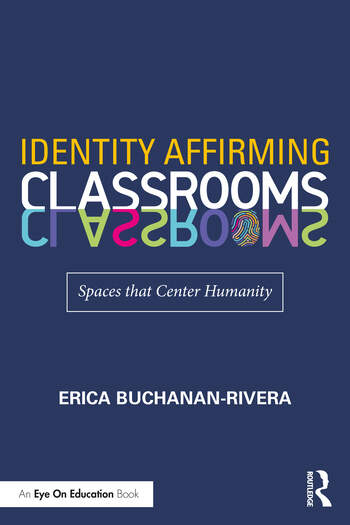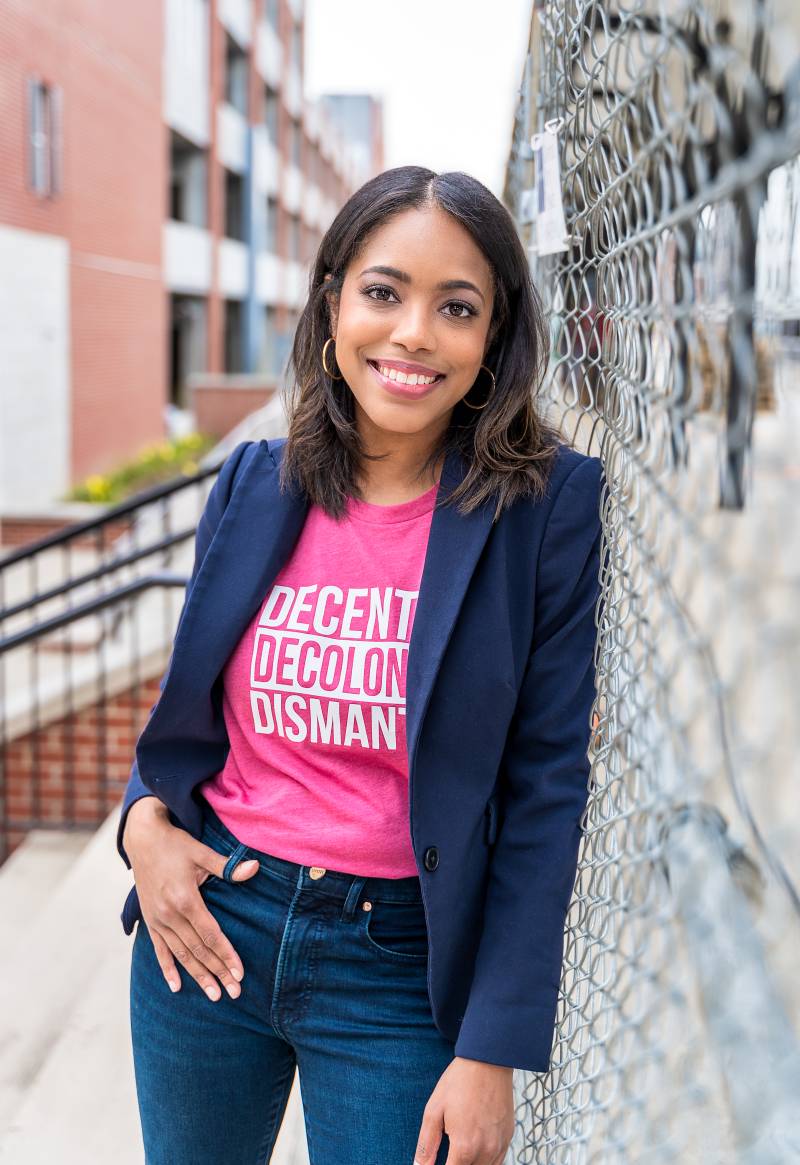Excerpted from "Identity Affirming Classrooms: Spaces that Center Humanity" by Erica Buchanan-Rivera. Published by Routledge.
Decolonize Your Mind and Classroom
A third-grade teacher attempted to take a brown crayon out of my hand and exchange it for a peach color after she noticed my depiction of Jesus as a Black man—yes, a lot of Crayola curriculum back in those days. Little did the teacher know, my house was full of Black Jesus (and Santa too) as my mom collected figurines, and I was also intelligent enough at the age of nine to know that a dark pigment (despite all the pale, fair-skinned images of Jesus in school) would be evident in a biblical story that took place near the equator. Yet, this teacher was passionate about “correcting me” and set a standard for my work due to her social construction. She deliberately overlaid her adopted norms over my reality.

Therefore, we must interrogate the dominant ideologies and how whiteness influences the spaces we design for children. Teachers also hold power over the decisions made in the classroom. We can determine the content and supplemental materials that need to be taught, and co-construct learning experiences with students. We can honor the native languages, culture, and racial experiences of students within the classroom, having critical conversations about social justice. We can help students to see that there are different methods to showing proficiency. To hold power means that we also have to engage in a practice of ideological unlearning.
One of my most powerful teachable moments occurred during my first year of teaching. While administering a math journal problem to a group of kindergarten students, I was approached by a student who was eager to show me her results. The problem read as followed:
Miss Buchanan only has four chairs in her home. She invited Sydnee, Ashton, Arius, and Jacob over for a snack. Will there be enough chairs for everyone, including Miss Buchanan, to sit down and enjoy the snack?
Sydnee solved the problem and shared that there would be enough seats for everyone. Immediately, this innate non-negotiable feeling emerged, and I advised that she may need to rethink her problem and try it again. The student continued to share that she was confident in her response and came up with a solution. I proceeded to demonstrate multiple strategies that matched my thinking. And again, Sydnee conveyed that there were enough seats because she figured out a way to make things work. Baffled by her reasoning, I took the time to meticulously look at her illustration as all students were required to demonstrate their problem-solving methods. In a combination of lowercase and capital letters she wrote, “Jacob cAnt coM.” Then, Sydnee proceeded to explain that she uninvited a student due to the lack of chairs available so we could all have a place to sit.
Her math journal taught me a valuable lesson about the importance of decolonizing my mind. I started to question: How often do I expect students to fit their thinking into a box that I created? How did I create this box? Why do I hold the notion that things need to be executed in a certain way to meet standards? Where did these standards originate from? How are these standards harming the creativity and brilliance of the students I’m serving, particularly those at the margins? While attempting to have Sydnee match my reasoning, I had failed to match her thinking process and see the possibilities beyond the way I conceptualized the problem.
Decolonizing our minds is a process of unlearning where we deconstruct the ideologies and binaries that other individuals, repress cultures, or deem people as inadequate due to the categorical, socially constructed hierarchies embedded in thinking—sometimes, without even knowing. The advancement of educational equity is a combination of mirror work and systems work where we collectively assess and challenge the power structures that yield unequal outcomes. We must understand the role we play in maintaining inequities. When you think of success, how do you define it and are those views tied to your expectations of students? (Kawi, 2020). In Hahnville High School in Boutte, Louisiana (Page, 2021) a student was prohibited from graduating due to the style of shoes he was wearing (which led to a teacher providing the student his own shoes). How were those standards for a dress code determined? A policy that would cost a significant milestone and accomplishment for a student? Considering the subjective nature of disciplinary offenses such as disruption and insubordination, how are we decolonizing our minds when working with human behaviors? The decolonization process starts with us (mirror work), and then we work to develop content with essential identity questions in a physical environment that is designed to value the identity of students.
 Erica Buchanan-Rivera,
Ph.D., is an educational equity scholar, consultant, community
organizer, and fierce advocate for children and liberatory spaces where
people can be their authentic selves. She has served as a teacher,
principal, director of curriculum, and adjunct professor. She is
currently the Director of Equity and Inclusion in a K-12 public school
district in Indianapolis, Indiana.
Erica Buchanan-Rivera,
Ph.D., is an educational equity scholar, consultant, community
organizer, and fierce advocate for children and liberatory spaces where
people can be their authentic selves. She has served as a teacher,
principal, director of curriculum, and adjunct professor. She is
currently the Director of Equity and Inclusion in a K-12 public school
district in Indianapolis, Indiana.




